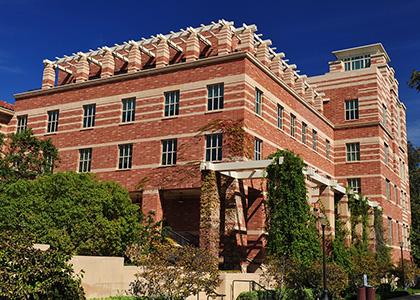Continued Success for Public Interest Loan Repayment Program

The first encounter Joel Marrero ‘10 had with legal advocacy was as a 7-year-old.
Marrero’s mother brought him to New Jersey when he was 5 years old, leaving an abusive situation in Puerto Rico. “We were entirely dependent on government assistance,” he recalls.
Marrero’s mother counted on him to translate conversations with social workers and other service providers from Spanish to English. When she got into a car accident, he helped her communicate with a lawyer.
“It was my first glimpse to the practice of law,” he says, and he was hooked. After that, he consumed whatever information he could, from television shows about lawyers to a school report on Thurgood Marshall.
Loan repayment program helps remove barriers to public interest careers
A career in public interest law was a natural fit for Marrero, but he graduated with significant student debt and earned much less as a new public interest lawyer than he had before law school.
But Marrero was beginning his legal career around the time UCLA Law started its Loan Repayment Assistance Program (“LRAP”). In 2011, UCLA Law began offering LRAP to help alumni in public interest, government, and judicial clerkships offset the cost of student loan repayment. Marrero qualified and began receiving aid to pay his student loans.
Without LRAP, Marrero says about 20% of his salary would’ve been consumed by student loan payments. “LRAP really stepped in and made sure I only paid a fraction of that.”
“When you have a lot of student loans, it can be daunting to take on a public interest job after graduation. Many of our public interest students make a fourth or less of what they might make at a large law firm,” says Brad Sears, UCLA Law’s Associate Dean for Public Interest Programs. “Our LRAP program completely takes over the payment of those loans up until someone makes $75,000 a year, so it’s quite a generous program. There’s some support until students make over $100,000 a year.”
Up until 2019, the Program covered loan payments in full for alumni making up to $60,000 and provided partial support until a recipient made $80,000 per year. In 2020, the school increased the maximum salary ceilings to $75,000 and $100,000, so that more alumni would be eligible as salaries rose.
LRAP supports alumni for up to ten years after graduation, when a federal loan repayment program becomes available. The federal Public Service Loan Forgiveness (PSLF) program forgives the balance of loans after the student makes 120 monthly payments while working for a qualifying government or non-profit organization. The payment assistance from UCLA’s LRAP helps alumni to meet the ten-year repayment requirement in order to qualify for federal loan forgiveness.
To date, LRAP has paid about $5 million in student loan debt. Currently, LRAP is supporting nearly one-hundred alumni. Some alumni even have had their entire loans repaid by benefiting from both LRAP and the federal PSLF offerings.
Pandemic created greater need for legal services
The full benefit of the 2020 increase in maximum salary eligibility has yet to be felt, notes Sears, because federal pandemic relief suspending student loan repayment began only a few months after the increase. As of this writing, the federal repayment freeze is scheduled to lapse on August 31.
Sears says the variety of public interest positions centered around issues like criminal justice and immigration grew over the course of the pandemic. Today, he notes, there is even greater need for public interest legal services.
UCLA Law a leader in public interest law
LRAP complements UCLA Law’s other initiatives like fellowships for students in unpaid summer public interest internships and the David J. Epstein Program in Public Interest Law & Policy, which engages students from the beginning of their first year.
All of this has led to UCLA Law’s leadership in the field. According to Dean of Admissions Rob Schwartz, about 10 percent of all graduates in the year following graduation are in public interest jobs. Adding alumni in clerkships and government, the total comes to about 20 percent. “We’re proud of how many of our students and alumni pursue careers in public interest,” Schwartz remarks. “Our ability to help them make that choice is vitally important.”
One of those graduating students planning to work in public interest is 3L Dylan Lee. Since before law school, he has had his sights set on public interest work. He has accepted a job with New York non-profit Mobilization for Justice, which provides civil legal services to poor and low-income individuals. When he was considering law schools, he was attracted to UCLA Law’s established and well-regarded public interest programs and LRAP was part of the draw. He says LRAP shows the school is willing to support students who want to take public interest jobs and still be financially feasible, noting “the LRAP program allows you to find that path.”
In 2020, Joel Marrero began working as an assistant attorney general in the New York State Office of the Attorney General. His early experience as a public interest attorney helped prepare him for the work he does today.
“[LRAP] really enabled me to worry less about salaries and focus on my career trajectory,” Marrero says. “If it hadn’t been for the LRAP program, I don’t know what career choices I would’ve made.”